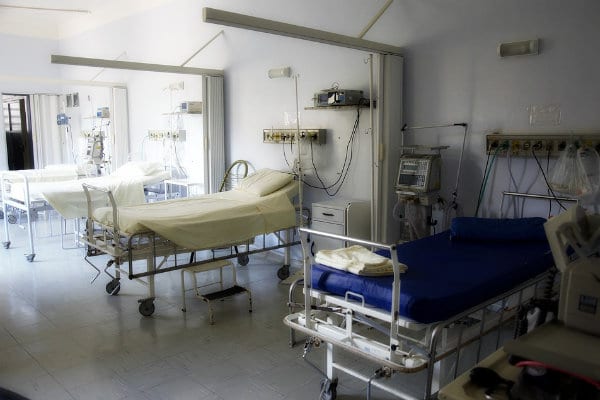The events that trigger the biggest changes in our lives are often the ones we’ve never prepared for. Shocks like a job loss, a sudden illness or an accident can impact our ability to work, earn an income and look after our families.
Laura and her husband, Peter, have three children – Vivian 9, Anthony 6 and Lily 3. Overnight their seemingly perfect family was thrown into turmoil in the face of an unexpected crisis.
The family had a comfortable life in Melbourne. Peter ran his own business as an engineer and Laura was a qualified researcher. They had lived and worked in Europe for a couple of years and since returning to Australia, Laura decided to take time for further study while caring for their children.
One day Peter suddenly felt sick. In hospital, Laura learned that he was having a stroke. She recalls her shock, Peter was only 45 years old, he was “super fit, cycled to work every day, barely drank anything, never smoked”. Peter had some complications that affected his brain, sight and mobility and a few months later he returned home in a wheelchair and legally blind.
The battle.
Laura then began the uphill ‘battle’ to ensure Peter would get the support he needed. From figuring out assistance to acquire wheelchairs, to adapting her house to her husband’s new needs, there were so many changes which all involved navigating different services and rules.
Their lives went from living on a comfortable income with no debt other than the mortgage to depending on a disability pension and carer allowance to support a family of five. The financial shock was felt immediately by Laura and her family.
Peter was a migrant with only a few years of residency in Australia and therefore didn’t have much superannuation. Nor did he have income protection or any form of disability insurance.
“I’d sit there looking at the spreadsheet and would say, ‘I cannot get these months out of the red, how is this going to work out? I never really felt in control and I never really felt I was getting anywhere nor going to get ahead ever… just keeping our heads above water. I suppose I just tried to juggle it,” said Laura.
Rising from financial shock.
Laura actively searched for support to better manage her family’s financial situation. She linked up with local disability organisations, borrowed money from family, sought financial counselling and downsized their larger home for something older and more affordable.
Laura recalls how important it was for the family to stay in the same neighbourhood, where stability and support was available through the local community who would bring meals and take their children out to play, as well as provide Peter with social support, throughout their time of crisis.
Gradually things improved. She got a job, which gave her further insight into improving her money management skills. Later, Laura was successful in getting a scholarship to complete her PhD. The psychological and material pressure eventually built up.
Peter’s illness affected his full judgment including financial matters. She decided to separate their bank accounts and ultimately they divorced although they still live together with their three children.
When Laura reflects on what helped her rise above their crisis to keep her young family stable, she identifies her social networks or her ‘social capital’, made up of family and local community support, plus her education level and work experience as key factors that enabled her to weather her family’s financial storm.
Good Shepherd Microfinance is leading the Financial Inclusion Action Plan (FIAP) – a national initiative designed to improve financial resilience and economic empowerment (primarily for women) across all levels of society. Business, governments, the community sector and academia all have an important role to play in supporting women like Laura to improve their financial knowledge and capabilities and to provide the right support and services. Visit FIAP.org.au to learn more.


